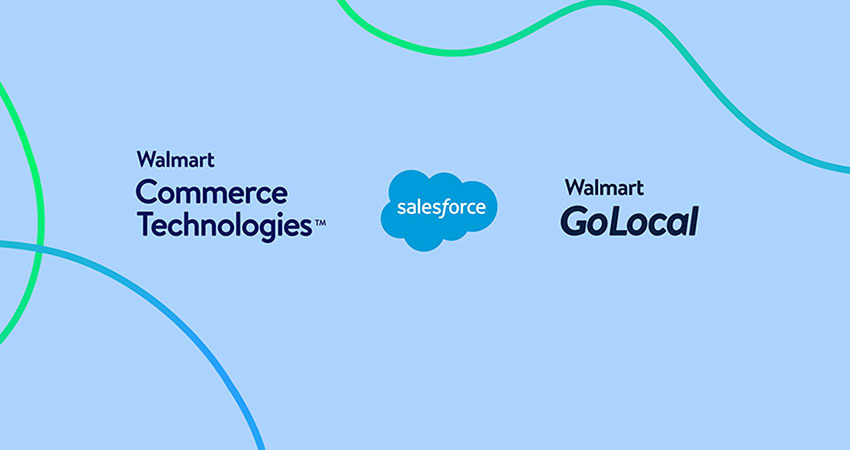Drawing parallels with Amazon’s expansion of Buy With Prime to all U.S. merchants — do they each have moles in the other’s operation? — Walmart and Salesforce have linked up to provide the former’s delivery and fulfillment services to a wider swath of merchants in the latter’s app store.
Through the partnership, Walmart’s GoLocal and Store Assist services will be available in the Salesforce AppExchange. GoLocal is Walmart’s outsourced version of its delivery services, and Store Assist helps retailers turn on store-based fulfillment.
Orders that come into Store Assist are routed by an OMS to a Walmart store or fulfillment center to be picked and packed, then handed off to the most logical nearby delivery partner in the GoLocal network, with the entire experience branded by the merchant.
“Through this partnership, retailers can leverage the same innovative and scalable technologies that power Walmart’s pickup and delivery experiences,” said Anshu Bhardwaj, senior vice president, technology strategy and commercialization with Walmart Global Technology in a release.
Bhardwaj said Store Assist has enabled Walmart to fulfill more than 830 million customer orders across over 4,700 Walmart stores since it launched in July 2019.
“Shoppers continue to expect brands to deliver highly connected and frictionless experiences across physical and digital touchpoints,” said Rob Garf, vice president and general manager of retail for Salesforce in the release. “In fact, one in five online orders placed the weekend before Christmas were picked up in store.” The latter was based on Salesforce Commerce Cloud data through the first three weeks of December.
Across the street at Amazon, Buy With Prime lets retailers not named … you know … offer shoppers the Prime experience and promise. It’s rolling out for all U.S. merchants as of Jan. 31, 10 months after a beta launch by invitation only for select users of Fulfillment By Amazon.
The program lets retailers offer a “buy with Prime” badge on select items online, which Amazon said has been shown to provide an average 25% conversion lift, based on its internal data during the test period. Benefits for Prime members include seamless checkout, same and next-day free shipping and simplified returns.
“Allowing merchants to offer Prime shopping benefits on their own direct-to-consumer online stores is an exciting part of the Buy with Prime mission to help merchants of all sizes grow their business whether on Amazon or beyond,” said Peter Larsen, vice president of Buy With Prime, in a blog post announcing the expansion.
MCM’s take: the heavyweight retail fight that is Walmart and Amazon, now well past 15 rounds with no decision in sight, is today’s version of Ford vs. Chevy, IBM vs. Microsoft during the latter’s ascendance, or Avis vs. Hertz. But in the last case, which one is #2 and trying harder? If you go by overall sales, it’s Walmart by a couple of lengths (sorry for the mixed sports metaphors) with 2022 revenue of $573 billion vs. $502.2 billion. But in terms of ecommerce, Amazon is still miles ahead, with a run rate of about $200 billion compared to about $80 billion for the Bentonville behemoth.
The latest battleground appears to be retail ad network sales, where Amazon once again has the jump over Walmart and most of the rest of the field, with 25% revenue growth in Q3 to $9.5 billion. That’s third only to Google and Facebook but growing faster than both, and more than 4x Walmart’s projected $2.2 billion per eMarketer/Business Insider; the company said it grew 30% in Q3.
It’s always interesting to see the “me too” nature of the battle, not dissimilar to what goes on between the duopoly carriers FedEx and UPS. As a wag here once quipped, in an acquisition they would be rebranded as FedUp.

